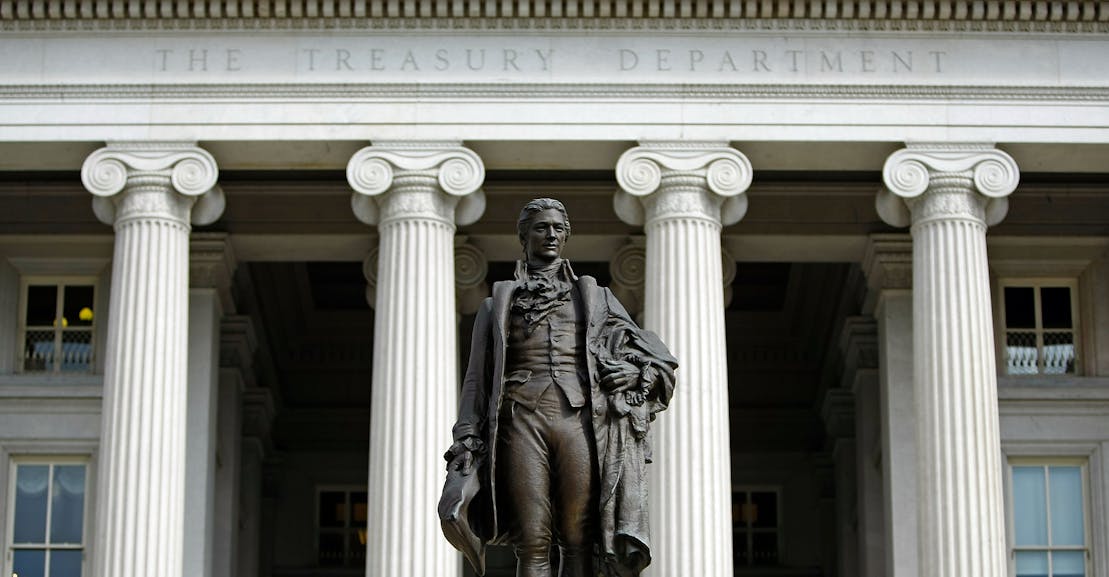
But that’s the
original intent of the 1787 Constitution, as set out by its principal
soothsayers, Hamilton, Madison, and Jay: Congress
has the power to borrow in Article I only on condition of avoiding a default, not
for enacting one. Now let’s turn to the
restatement of the original intent of the “1867 Constitution,” as modified by
the three Civil War amendments, the Thirteenth, the Fourteenth and the Fifteenth. Under these ratified amendments, the argument
for the Debt Limit Statute becomes a form of treason.
Section 4 of the
Fourteenth Amendment says, in part: “The validity of the public debt of the
United States, authorized by law, including debts incurred for the
payment of pensions and bounties for service in suppressing insurrection or
rebellion, shall not be questioned.” (Emphasis added.) In both the Clinton and Obama
administrations, legal scholars such as Lawrence Tribe argued that Section 4,
so oddly worded, did not directly limit the power of Congress; it does not say
a willful default would be unconstitutional. Professor Tribe said that Section 4 was not
enough. Obama was not sure. Clinton said he did not care, he would keep
paying anyway.
But this argument
over Section 4 misses the point: Its purpose was not to newly assert that a
willful destruction of the public credit was unconstitutional. It was already unconstitutional, under
the 1787 Constitution, as explained by Hamilton in Federalist Number 30. The purpose of Section 4 was to amend the
Speech and Debate Clause of Article I, in a ham-fisted way, to prevent
returning members of Congress from the Confederacy even to question the debt
limit. For that purpose, Section 4 has
been a bust. It is too clumsy, an act of
an occupying power wary of the enemy. It
is not self-executing, and Congress has never used its authority under Section
5 to punish such a form of treason. That
is hardly surprising, since members of Congress cherish their immunity under
the Speech and Debate Clause, not to mention the First Amendment.
